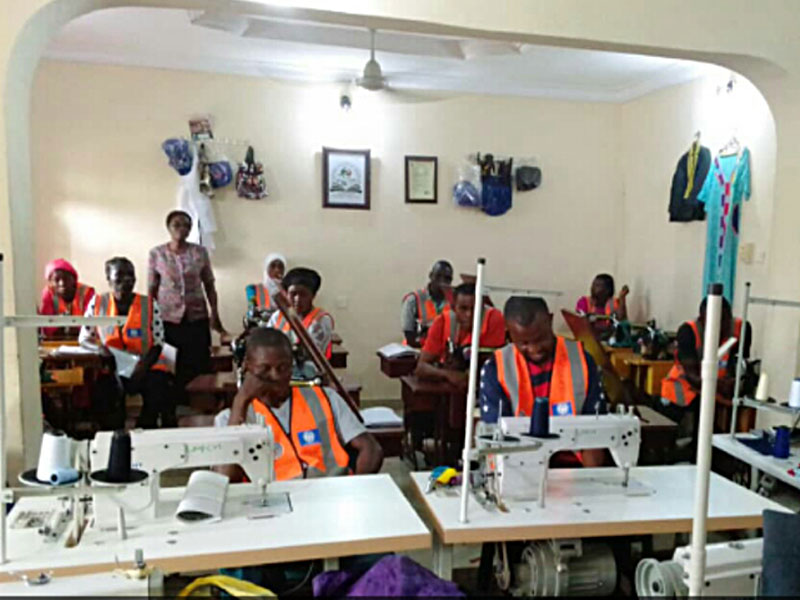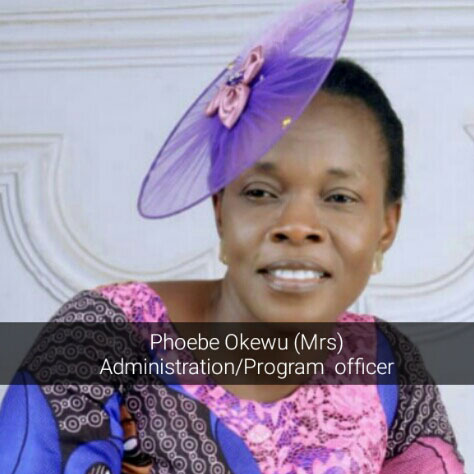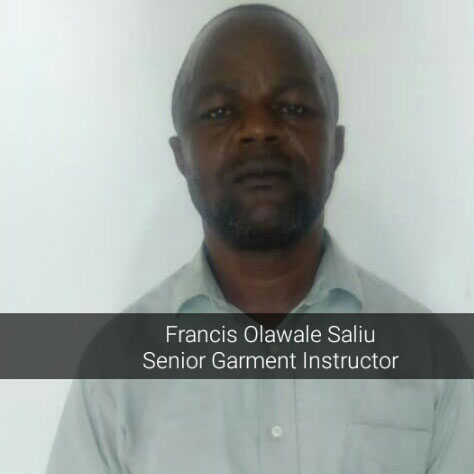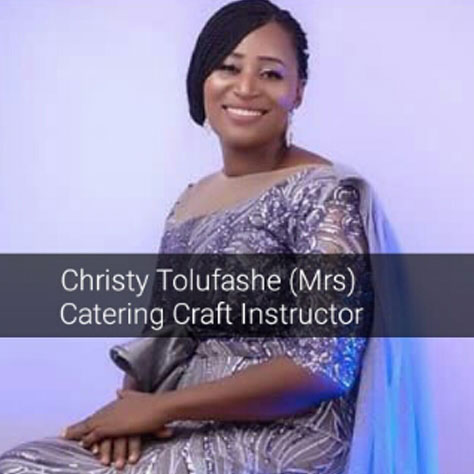Overview
In pursuit of our charter, foremost component of which is human innate ablities development for productive and imactful lives in all, the trustee board of LMF founded the Chateko Vocational Institute.(lmf-cvi).
From 2018 to this time, it had been a steady growth of daily differences. In this space of time, LMF-CVI moved from training for indegents alone to an institute focused on:
- The physically challenged people
- Out of school children
- Rural women skills empowerment
- The indigents
 LMF-CVI Garment making training room (1)
LMF-CVI Garment making training room (1)
 LMF-CVI Garment making training room (2)
LMF-CVI Garment making training room (2)
 LMF-CVI Catering crafts training room
LMF-CVI Catering crafts training room
 LMF-CVI Lecture room
LMF-CVI Lecture room
Presently, concentration is been focused on equipping the hall specifically designated for the training of the physically challenged. This hall has been fitted with a wheel chair ramp. We keep encouraging our partners to creatively design new and inovative ways of catering to the needs of the indigent in our society. If you would love to be a donor towards making the hall fully functional for the training of the physically challenged, there are so many ways your little contributions can help. The project of fitting and equiping the hall for the physically challenged has been broken down into small quantifiable action units to make it possible for every donor to find what they can accomplish.
If you would love to help with this glorious work, kindly wire your donations to our account. Details:
First Bank plc .
Account Name: Ladi Memorial Foundation.
Account No: 2034031001
The LMF-CVI at the moment has a library stocked with over 1000 vocational training related books. Our e-library is being built as a section of this website and will shortly go live.
ADMISSION SPACES
Admissions into our vocational programs are in batches and ongoing. Individual sponsorship for a group or batch of trainees also available. This is tailor made to impart skills into the unemployed in your locality and cut to fit your donation budget. Talk to us now.
Apply Now →
Where did it all begin? And how was it concepted?
Background
- According to the 2018 report of the World Bank and UNICEF, Nigeria has 14 million out of school children, reportedly the highest number of out of school children in the world, mostly in Northern Nigeria. Also the population of Nigeria as at 2018 is predominantly youthful, of person less or equal to 30 years old;
- Nigeria’s estimated population of 170million, over 65million are illiterate and cannot read and write.
- Kogi State realities as at 2018 includes:
- High number of out of school children and school drop outs due to cultural and socio-economic factors- declining family income, unemployment, discrimination against girl child education, early marriages, social vices leading to teenage pregnancies etc;
- Declining standard of education in the state and particularly deteriorating facilities and poor management of public schools and inability of parents to afford quality private schools;
- Poor/ Non-access to quality formal, non-formal and informal technical, vocational education and training has contributed to underdevelopment and human flight from most communities thereby resulting in high unemployment, poor education/ low skills levels, youth restiveness and low blue collar jobs in the State.
- There are limited functional vocational skills centers and interested persons patronize informal centers which take very long to complete, provide no literacy or access to trades certification as made possible through the NSQF, and which environment is not usually convenient for learning/ instruction in most cases.
- Since most school drop outs find it difficult to return to formal education settings and mass literacy, adult and non-formal centers are sparse across the State and not strengthened for efficient and quality service delivery, a significant part of local population are stranded.
- Students have limited exposure to practical technical and vocational skills during their period formal education and after graduation have limited access and opportunity for such trainings thereby contributing to their limited skills level and limited entrepreneurship and employment opportunities.
- Only few Local Government areas have functional vocational skills center and non-provide literacy classes or trades certification services.
- There are limited local experts and professionals and those available require further trainings to improve their competencies.

LMF-CVI Batch of Garment making trainees (2019)
Goals and Objectives of LMF Chateko Vocational Institute
- To provide career, technical and vocational education and training that equip people- children, young adult and adults of all class, gender and social backgrounds- with practical and functional skills and prepares them to work in various jobs such as a trade, a craft or as a technician, in both formal and informal settings for entrepreneurship and lifelong employability.
- To expose individuals, groups and communities to real work activities and support them to develop local expertise and skills in local community’s available areas of competitive advantages and ensure sustainable development and improve productivity through increased blue collar jobs, reduced burden of out of school young adults and reduce brain drain in local communities.
- To provide access to stranded members of the population who desire to diversify skills/ expertise for multiple streams of income.
- To provide training for trainees through formal classroom instruction, non-formal and informal training which includes but is not limited to tailored workshops, seminars and capacity building programmes, to ensure entrepreneurship, competencies and mastery to initiate, plan and analyze and develop projects on their own and earn a living through such.
- To provide opportunity and access for artisans and out of school persons, artisans and local entrepreneurs from non-formal education outfits to to formal testing, examination and certification in respective trades as available, as well as joint certification programmes.
- To build in trainees/ students a sense of self-esteem, self-worth, positive work values, confidence and leadership skills through life skills (such as communication skills, personal and interpersonal skills, creative and critical thinking skills, global awareness, entrepreneurship, financial planning service excellence etc) and practical skills mastery for young and adult learners, teachers, women, community leaders, and other individuals/groups.
- To facilitate capacity development of staff and develop capacity of individuals, organizations, groups and communities to obtain, improve and retain skills, knowledge, tools, equipment, and other resources needed to do their jobs competently to a great capacity.
- To achieve organizational and academic excellence and support communities and groups to undertake social and behavioral change which leads to development through practical vocational skill development.
- To provide avenues for mentorship, internship and apprenticeship to entrepreneurs, students and graduates who have kor no practical vocational experience in their institutions of learning, or who desire to acquire additional/ expert training.
- To further the objectives of Ladi Memorial Foundation and provide for a for individuals, experts, community groups and stakeholders to undertake community service and social works through volunteerism and social responsibility projects as visiting professionals, consultants, trainers, facilitators etc for increased community development.
- To encourage technology transfers and create opportunities for industry attachments, internship programmes and networking for desirous people, trainees, students, institutions, employers, manufacturers and all categories of stakeholders thereby connecting trainees to resources, equipment, grants, scholarships, sponsorships, partnership, financial assistance to students and funding opportunities for trainings, education and business startups.
- To assist school drop outs attain literacy goals while acquiring technical, vocational education and training thereby reducing the burden of illiteracy and unemployment.
- To provide holistic learning experience for career, technical and vocational education and training for students in such areas including but not limited to: garment making, catering craft practice, animal husbandry, fisheries, textile trades, printing craft practice, cosmetology, tourism, wood and metal works, electrical and plumbing etc.
- To provide career and academic advising and counseling by in-house counselors, professional counseling or linkages with external expertise where applicable/ necessary.
- To hold career fairs and consultancies and any other activities related to career, technical and vocational education, training and practice.

LMF-CVI: Some members of a batch of graduating trainees
Governance and Institutional Structure
- Governing Board The governing Board comprise of 5 members and 2 non-permanent members. The Principal of the Vocational Institute will be a member of the Governing Board while the registrar of the Institute shall serve as Secretary to the Board.
- The Institutional structure of the Institute comprise of an Academic Council, a Principal, and an Executive committee, Internal Audit Unit and 4 functional Departments/ Faculties headed by Vice Principals (VP).
- The Functional departments as headed by Vice Principals is as detailed in C(i-iv) below and could be reviewed as the Institute grows.
- Academic Department headed by the VP Academic have mandate for: curriculum & educational development; educational design and technology; registrar’s office, student affairs, vocational training affairs;
- Corporate Department headed by the VP Corporate have mandate for: corporate affairs, campus development and estates, finance, Human Resources and IT services.
- Industry Department headed by the VP Industry have mandate for Continuing education and training, industry based training and student farming/ internship/ exchange.
- The Campuses Department is headed by the VP Campuses and have mandate to oversee the various campuses (TVET centers as may be established in various locations, and the Administration, student and academic services, departments of those campuses.
- The pioneer TVET campus is LMF-CVI, Ileke Emonoja, Ogugu Campus in Olamaboro LGA which commenced in August 2018. The main campus in Kogi State is in Lokoja, the State Capital.

LMF-CVI: A batch of catering crafts trainee proudly displaying their pastries product. A result of their newly acquired skills.
Institute Culture for Staff
- Integrity
- honesty and sincerity in words and action towards others
- true to profession & organization
- Team work
- Work as team and help each other
- Engage in collaborative partnerships for win-win outcomes
- Excellence
- Strive for higher benchmarks to build the best organization
- Continue to improve and innovate to add value to our customers
- Care
- Go the extra mile, treat others the way we like others to treat us
- Be thoughtful to others and show genuine interest
- Be mindful of the environment and minimize wastage

LMF-CVI: Members of invited public admiring project products of a graduating batch of trainees
Institute Culture for Students
- Dedication to vocation
- Dignity of honest labour
- Respect and appreciation of kidness to humanity
Professional conduct and ethical behavior
Contact Email: chatekovocational@gmail.com


 LMF-CVI Garment making training room (1)
LMF-CVI Garment making training room (1) LMF-CVI Garment making training room (2)
LMF-CVI Garment making training room (2) LMF-CVI Catering crafts training room
LMF-CVI Catering crafts training room LMF-CVI Lecture room
LMF-CVI Lecture room






